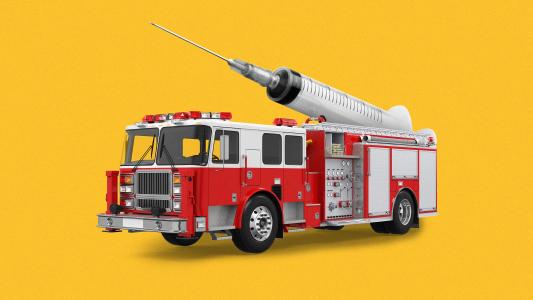After recovering from COVID-19, most people feel just like they did before. However, tens of thousands of COVID-19 survivors in the U.S. continue to experience health problems long after their infection clears.
This condition is technically called “post-acute sequelae of SARS-CoV-2 infection (PASC),” but most people refer to it as “long COVID,” and there’s a lot about it that scientists still don’t understand.
Now, in an attempt to answer these questions, the U.S. is giving the National Institutes of Health (NIH) $1.15 billion to study long COVID.
“This (initiative) involves no less than 20 of our 27 institutes,” NIH Director Francis Collins told Government Executive. “This is going to be all hands on deck in a pretty unprecedented large-scale cohort analysis to get answers to this vexing problem.”
Here’s what the NIH hopes to figure out about long COVID — and how it plans to do it.
What Is Long COVID?
Diagnosing people with COVID-19 is easy: Did they test positive for the virus? Then they probably have COVID-19.
Diagnosing people with long COVID isn’t so simple.
There’s no test for it, and it includes a range of symptoms — from fatigue and fever to anxiety and depression — that can last anywhere from a few weeks to indefinitely.
Because there’s still no universally accepted definition for long COVID, it’s hard to know how many people have it or have recovered from it, so honing the syndrome’s definition will be one of the NIH’s research goals.
Who Does Long COVID Affect?
Not only do we not know exactly how many people have long COVID — because we don’t have a set definition of it — we also don’t know why some people suffer long-term effects from the disease and others don’t.
Symptoms of long COVID appear to linger even in people who had only mild cases of COVID-19, so infection severity isn’t the whole story. Is there something about their biology, lifestyle, or environment that made them vulnerable? Or is it something else entirely?
Right now, it’s really a black box.
Francis Collins
To try to answer this question, the NIH will track at least 40,000 COVID-19 survivors through both established and new studies.
It will also collect biological samples from long COVID patients — blood, urine, cerebrospinal fluid, etc. — and make those samples available to researchers.
These initiatives could help scientists characterize long COVID and, hopefully, identify the people most vulnerable to it.
Can We Treat or Prevent Long COVID?
The NIH hopes to discover ways to treat or prevent long COVID, but that research can’t happen until the agency learns more about the condition.
The $1.15 billion in funding is expected to last four years, so as new information emerges, new studies can be launched to explore treatments or preventions for the long-term effects of COVID-19.
“Right now, it’s really a black box,” Collins said. “We’ve got theories, but we need data to try to begin to sort this out.”
We’d love to hear from you! If you have a comment about this article or if you have a tip for a future Freethink story, please email us at [email protected].






